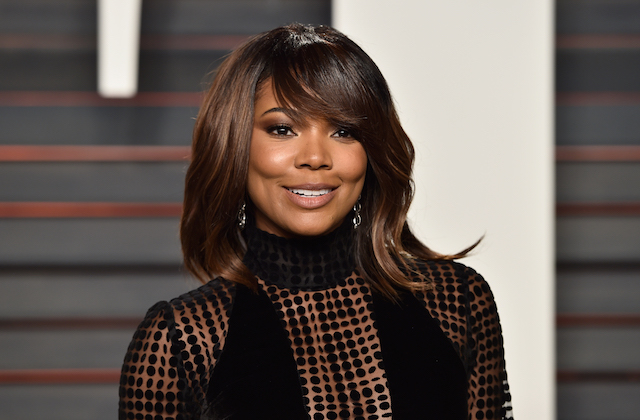Before she became an A-List star, Gabrielle Union survived a harrowing rape at gunpoint. She now uses her platform to advocate for sexual assault survivors. And in this fall’s "The Birth of a Nation," she portrays a slave who silently endures a master’s rape. Union addressed both aspects of her life, in tandem with the controversy surrounding co-star and "Birth" auteur Nate Parker‘s recently resurrected 1999 sexual assault case, in a poignant new essay in the Los Angeles Times.
"Since Nate Parker’s story was revealed to me, I have found myself in a state of stomach-churning confusion," she wrote. "I took this role because I related to the experience. I also wanted to give a voice to my character, who remains silent throughout the film. In her silence, she represents countless Black women who have been and continue to be violated. Women without a voice, without power. Women in general. But Black women in particular. I knew I could walk out of our movie and speak to the audience about what it feels like to be a survivor."
Further addressing the case, Union mentioned that she read "all 700 pages of the trial transcript" and still does not know exactly what happened.
"Nor does anyone who was not in that room," she wrote. "But I believe that the film is an opportunity to inform and educate so that these situations cease to occur on college campuses, in dorm rooms, in fraternities, in apartments or anywhere else young people get together to socialize."
Union also described how she and her husband, Chicago Bulls player Dwyane Wade, are raising his sons to understand proper definitions of consent:
rnt
As a Black woman raising brilliant, handsome, talented young Black men, I am cognizant of my responsibility to them and their future. My husband and I stress the importance of their having to walk an even straighter line than their White counterparts. A lesson that is heartbreaking and infuriating, but mandatory in the world we live in. … But recently I’ve become aware that we must speak to our children about boundaries between the sexes. And what it means to not be a danger to someone else.
t
To that end, we are making an effort to teach our sons about affirmative consent. We explain that the onus is on them to explicitly ask if their partner consents. And we tell them that a shrug or a smile or a sigh won’t suffice. They have to hear "yes."
She also affirmed her hope that the controversy and film will inspire necessary conversations about sexual violence and consent:
t
rntt
Think of all the victims who, like my character, are silent. The girls sitting in their dorm rooms, scared to speak up. The wife who is abused by her husband. The woman attacked in an alley. The child molested. Countless souls broken from trans-violence attacks. It is for you that I am speaking. This is real. We are real. Sexual violence happens more often than anyone can imagine. And if the stories around this film do not prove and emphasize this, then I don’t know what does.
rnt
t
What do you think of Union’s essay? Let us know in the comments.
